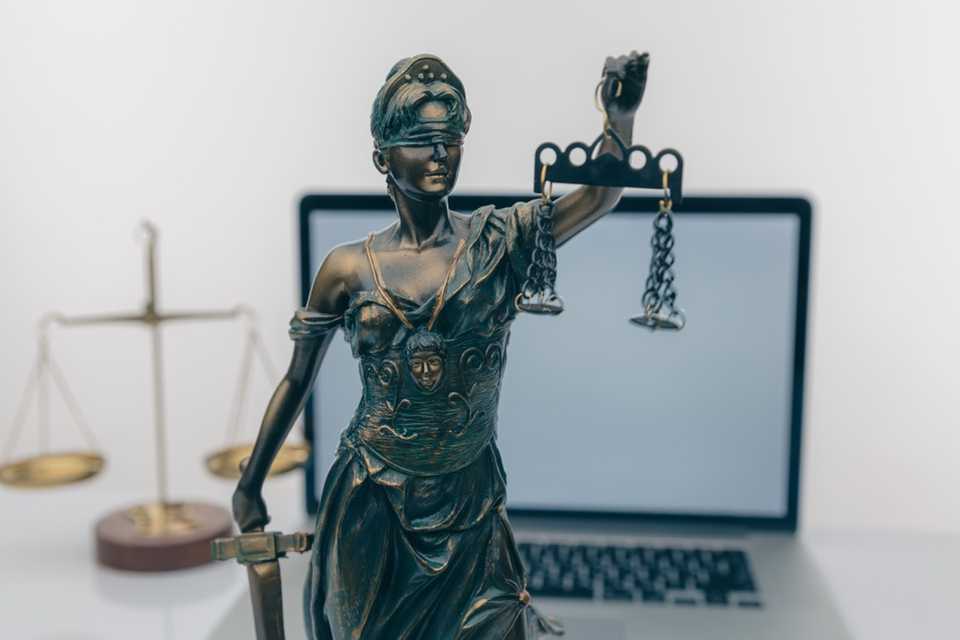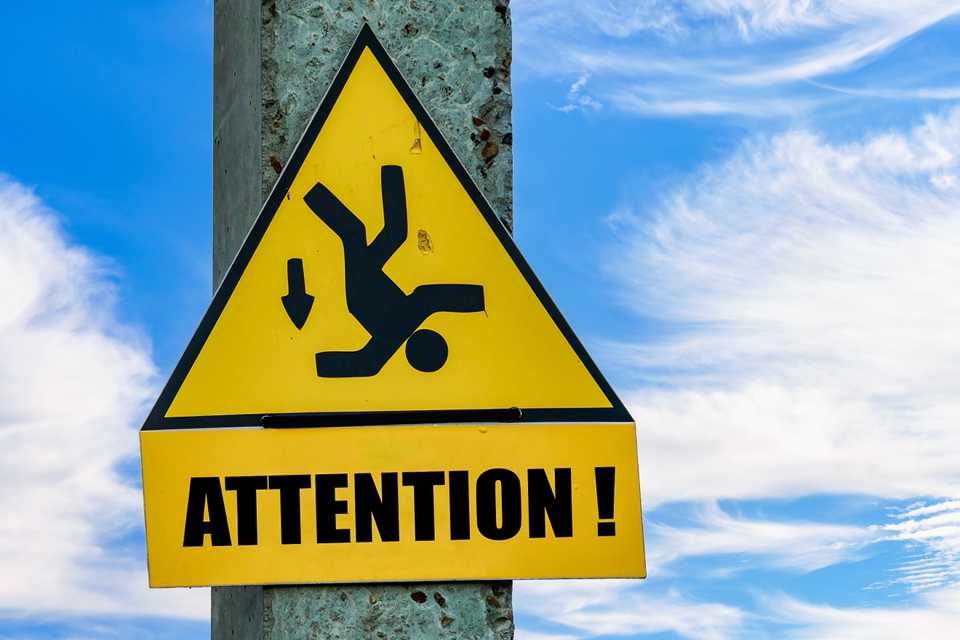Understanding personal injury law can be tricky, but this doesn’t mean that it’s not important. As you’ll come to find out, this type of law is helping individuals seek remedy for a variety of situations that are all too common in today’s world.
Let’s jump in – When do personal injury lawyers come into play?

You never know when you’ll need a personal injury lawyer. In fact, accidents occur in everyday life where individuals suffer harm due to the negligence or wrongdoing of others. That is when the need for a personal injury lawyer becomes essential to seeking proper remedy for the injury suffered.
Personal injury lawyers play a crucial role in advocating for the rights of injured individuals and helping them navigate the complex legal landscape. Whether it's a motor vehicle accident, a slip and fall incident, medical malpractice , product liability, or a workplace injury, the expertise and guidance of a personal injury lawyer can be invaluable in seeking justice and fair compensation.
Keep reading because in the following JuriGo will walk you through the importance of personal injury lawyers and the situations where their services are often required. We’ll also be exploring the vital role they play in protecting the interests of those who have been injured.
You might be entitled to compensation! It’s important to note that you may currently find yourself in a situation where you could benefit from a lawyer’s guidance in seeking remedy without even knowing it!
This is when JuriGo’s services come in. They can help connect you with specialized attorneys who will step in and help you navigate your situation – regardless of its complexity!
Diving into personal injury: What does it look like in Canada?
You may be wondering how personal injury law shows up in your life. That’s why we’re going to be looking at its origin, explaining the basic principles needed to seek remedy and the overall logic on which it is based. After all, what good is the law if you can’t understand it!
Civil law, Common Law…. What’s the law?

There is a distinct difference in how personal injury law is approached in common law versus civil law jurisdictions in Canada. This difference becomes particularly evident when comparing incidents between provinces that operate under civil law, like Quebec, and the rest of Canada, which follows the common law framework.
In common law jurisdictions, including most provinces in Canada, personal injury claims are governed by the law of torts. The law of torts encompasses various sub-categories, with negligence being the most prominent one.
Each sub-category has its own specific criteria and elements that need to be established in order to prove liability. For example, in a negligence claim, the plaintiff must demonstrate the existence of a duty of care, breach of that duty, causation, and damages. Other sub-categories of tort law may include intentional torts, strict liability, and more.
In contrast, Quebec operates within the civil law system, which follows a more generalized approach to personal injury cases under the concept of civil responsibility. Civil law in Quebec relies on the Civil Code of Quebec, which provides comprehensive and overarching principles governing civil liability.
Instead of dividing personal injury claims into specific categories like negligence, the civil law approach focuses on the general concept of civil responsibility or extra-contractual responsibility. This means that the same fundamental principles apply to various types of personal injury cases, without the need for specific sub-categories.
While the basic principles of establishing fault, causation, and damages are still present in both common law and civil law systems, the approach and terminology used in each system can differ. The differences between common law and civil law can impact the legal process, the burden of proof, and the availability of certain remedies or defenses in personal injury cases.
It is important to consult with legal professionals who specialize in the specific jurisdiction and legal framework applicable to the personal injury claim. They can provide tailored advice and guidance based on the specific laws and principles governing personal injury law in the respective jurisdiction.
When can you seek damages for a personal injury?
So, what kind of situations actually open up the possibility to seek remedy under the umbrella of personal injury law? In the following we’ll look at the most typical instance where one can and should seek remedy with the help of a personal injury lawyer in everyday life.

- Car Accidents: Car accidents are one of the most common instances where individuals can seek damages. If someone is injured due to the negligence or recklessness of another driver, they may be entitled to compensation for medical expenses, property damage, lost wages, pain and suffering, and other related losses.
- Slip and Falls: Slip and fall accidents can occur on someone else's property due to hazardous conditions, such as wet floors, icy surfaces, or poorly maintained premises. If the property owner or occupier is negligent in maintaining a safe environment and it leads to a person's injury, the injured party may be able to seek damages for their injuries and associated costs.
- Medical Malpractice: When medical professionals, such as doctors, nurses, or hospitals, provide substandard care that results in harm or injury to a patient, the injured person may have a medical malpractice claim. In such cases, the injured party can seek damages for medical expenses, lost income, pain and suffering, and other damages caused by the medical negligence.
- Product Liability: If a defective or dangerous product causes harm or injury to a consumer, the injured person may be able to seek damages from the manufacturer, distributor, or retailer. This can include injuries caused by malfunctioning machinery, unsafe pharmaceuticals, faulty consumer products, or other defective goods.
It's important to note that these are just a few examples, and personal injury claims can arise from various other situations, such as workplace accidents, dog bites, professional negligence, and more.
Consulting with a personal injury lawyer is crucial to assess the specific circumstances of the injury and determine if seeking damages is appropriate and viable. They can provide guidance and representation throughout the legal process to help individuals pursue the compensation they deserve.
If you’re worried about finding a lawyer that right for your situation leave that stress behind and entrust JuriGo to do the work for you. We’ll help connect you with a qualified attorney who will be more than able to help you navigate your situation regardless of its complexity! Why wait?
Back to the basics : What is you burden of proof?

| As in any legal recourse, there’s an important element that is: the burden of proof. In simple terms this refers to what the victim or person seeking remedy will have to demonstrate in front of the courts to win their case. |
|---|
Certainly! In the context of common law and personal injury law in Canada, when seeking remedy for a personal injury resulting from negligence, it is important to consider the following elements that need to be proven:
- Duty of Care: The first step is to establish that the defendant owed a duty of care to the plaintiff. This means showing that the defendant had a legal obligation to act reasonably and not cause foreseeable harm to others. The existence of a duty of care depends on the specific circumstances of the case, such as the relationship between the parties and the foreseeable risks involved.
- Breach of the Standard of Care (Fault): The plaintiff must demonstrate that the defendant breached the standard of care that a reasonable person in the same situation would have exercised.
This involves showing that the defendant failed to fulfill their duty of care by acting in a negligent or careless manner. The plaintiff typically relies on expert testimony, industry standards, or established guidelines to establish the expected standard of care.
- Factual Causation: The plaintiff must establish a causal link between the defendant's breach of the standard of care and the injury suffered. This requires proving that "but for" the defendant's negligent actions or omissions, the injury would not have occurred. In other words, the plaintiff must show that the defendant's conduct was a factual cause of the injury.
- Causal Proximity: It is not enough to establish factual causation alone. The plaintiff must also demonstrate that there was sufficient causal proximity between the defendant's breach of the standard of care and the damage caused by that breach. This involves showing that the harm suffered by the plaintiff was a reasonably foreseeable consequence of the defendant's actions or omissions.
- Damage/Harm: Finally, the plaintiff must prove that they have suffered actual harm or damage as a result of the defendant's breach of the standard of care. This can include physical injuries, emotional distress, financial losses, medical expenses, or any other form of quantifiable harm resulting from the negligence.
By addressing these elements - duty of care, breach of the standard of care, factual causation, causal proximity, and damage/harm - in a personal injury case, the chances of success in seeking a remedy for negligence under Canadian common law are maximized.
It is important to consult with legal professionals who specialize in personal injury law to navigate through these elements effectively.
Now… What about personal injury law in Quebec?
In Quebec civil law, personal injury cases require the plaintiff to establish three essential elements to demonstrate someone's liability:
- Fault: The plaintiff must provide evidence of an act or omission committed by the defendant that resulted in harm to the plaintiff. This fault can be a negligent action, a breach of duty, or any other wrongful conduct that caused the injury. It is essential to establish that the defendant's actions or omissions deviated from the standard of care expected in similar circumstances.
- Proof of Damages: The plaintiff needs to demonstrate the existence of "injury" or "damages" resulting from the defendant's fault. Damages can encompass various forms, including physical injuries, emotional distress, loss of income, medical expenses, and other quantifiable losses.
The plaintiff must present documented evidence, such as medical reports, bills, expert opinions, or witness testimonies, to substantiate the extent and impact of the damages suffered.
- Establishing a Link of causality: The pivotal element in a personal injury case is establishing a clear causal connection between the defendant's fault and the plaintiff's injury.
The plaintiff must prove that the defendant's actions or omissions directly caused or substantially contributed to the harm suffered. This link of causality is crucial to establish the defendant's legal responsibility for the damages claimed by the plaintiff.
In summary, under Quebec civil law, a plaintiff in a personal injury case must present evidence of the defendant's fault, establish the existence and extent of damages resulting from that fault, and demonstrate a direct causal connection between the fault and the injury.
These three fundamental elements form the basis for proving liability and seeking compensation in personal injury cases in Quebec.
Getting what you deserve : What kind of remedies or compensation can you expect?
In Canada, it is widely recognized that compensation for damages linked to personal injury are significantly more modest than what is seen in the United States.
However, this should not discourage you from pursuing your legal case. This should motivate you to seek the help of a personal injury lawyer – to explore which angles would benefit you the most in winning your case.
In Quebec…
When you are a victim of a personal injury in Quebec, you may be entitled to various types of compensation. The compensation aims to provide financial support for the physical, emotional, and financial hardships you have endured due to the injury. Here are some types of compensation you can expect:
- General Damages: This covers non-economic losses such as pain and suffering, loss of enjoyment of life, and emotional distress resulting from the injury.
- Medical Expenses: Compensation for medical treatments, medications, rehabilitation, and any other necessary healthcare expenses related to your injury.
- Loss of Income: If the injury has caused you to miss work or has affected your ability to earn an income, you may be compensated for the wages lost during the recovery period or any potential future loss of earning capacity.
- Property Damage: If your personal belongings or property were damaged in the incident that caused the injury, you may be compensated for the repair or replacement costs.
- Care and Assistance: Compensation for any additional care or assistance you require due to the injury, such as hiring a caregiver or modifying your living environment.
- Loss of Consortium: In cases where the injury has significantly affected your relationship with a spouse or partner, they may be entitled to compensation for the loss of companionship, guidance, or assistance.
It's important to note that the specific compensation you receive will depend on the circumstances of your case, the extent of your injuries, and the impact they have had on your life. Consulting with a personal injury lawyer in Quebec can help you understand your rights, navigate the legal process, and pursue the appropriate compensation to which you may be entitled.
No-fault system in Quebec in regards to motor vehicle accidents. Quebec operates under a no-fault insurance system. This means that regardless of fault, individuals involved in a car accident are generally entitled to certain benefits from their own insurance company to cover medical expenses and other damages. These benefits are provided through the province's public automobile insurance plan, the Société de l'Assurance automobile du Québec (SAAQ).
Let’s simplify this! Essentially, when you're a car accident victim in Quebec, the compensation process operates under the no-fault insurance system. Here are key points to understand:
- Accident Benefits: Regardless of fault, you're entitled to accident benefits from your own insurer. These benefits cover medical expenses, rehabilitation costs, and income replacement for a specified period.
- Civil Liability: If you've suffered a serious and permanent injury, you can file a civil liability claim against the at-fault driver. This seeks compensation beyond accident benefits for pain and suffering.
- Threshold for Civil Liability: Quebec has a threshold for pursuing a civil liability claim. Your injury must meet the "serious and permanent" criteria defined by law, such as significant impairment or loss of a bodily function.
- Cap on Damages: There's a cap on non-economic damages in car accident cases in Quebec. This limit, adjusted annually, applies to pain and suffering and other non-economic losses in civil liability claims.
- Legal Assistance: Consult a car accident lawyer experienced in Quebec's laws to assess your case, explore compensation options, and guide you through the process.
Remember, these points offer a general overview, and seeking personalized advice from a lawyer is crucial for your specific situation.
What about personal injury cases in the rest of Canada?
Once liability is established, the plaintiff can seek various types of compensation and remedies, including:
- General Damages: These compensate the plaintiff for non-quantifiable losses, such as pain and suffering, loss of enjoyment of life, and emotional distress.
- Special Damages: These cover the quantifiable financial losses incurred by the plaintiff, including medical expenses, rehabilitation costs, lost wages, and property damage.
- Future Care Costs: In cases where the injuries have long-term consequences, the plaintiff may be entitled to compensation for anticipated future medical treatments, therapy, and care.
- Punitive Damages: In exceptional cases involving malicious or egregious conduct by the defendant, the court may award punitive damages to punish the defendant and deter similar behavior in the future.
Similarly, in Alberta, personal injury compensation and remedies follow a comparable approach based on negligence principles. The injured party must establish the elements of duty of care, breach of the standard of care, causation, and damages to succeed in a personal injury claim.
It is important to note that each case is unique, and the specific laws, regulations, and legal precedents in Ontario and Alberta can influence the outcome of personal injury claims. Seeking legal advice from experienced personal injury lawyers is crucial to understand the intricacies of the law and navigate the compensation process effectively.
That’s a wrap on personal injury law! What now?
In times of unexpected accidents and injuries, the guidance and expertise of a personal injury lawyer can make all the difference.
Whether you've been involved in a car accident, suffered a slip and fall incident, experienced medical malpractice, or encountered any other situation where someone else's negligence has caused you harm, seeking justice and fair compensation is essential. That's where JuriGo comes in.
JuriGo is here to connect you with specialized attorneys who can skillfully navigate your unique situation, no matter how complex it may be. Don't let the legal complexities overwhelm you. Our team will ensure you receive the guidance and representation you need to pursue the compensation you deserve.

If you're unsure whether you could benefit from legal assistance or have questions about personal injury law in your specific jurisdiction, don't hesitate to reach out to JuriGo.
We understand the intricacies of the legal landscape, including the differences between common law and civil law jurisdictions. Our network of qualified lawyers is ready to help you understand your rights and options.
Remember, time is of the essence when it comes to personal injury cases. Don't delay in seeking the legal support you need.
Visit JuriGo's website today to connect with an attorney who will fight for your rights and ensure you receive the compensation you're entitled to. Take the first step towards justice and put your trust in JuriGo's reliable and comprehensive services by filling out our form.